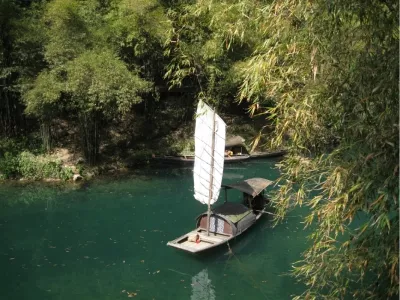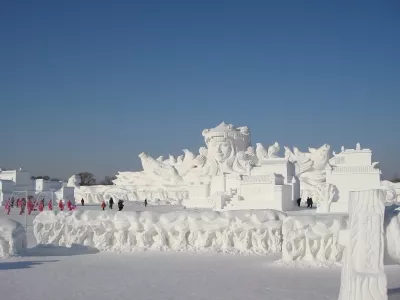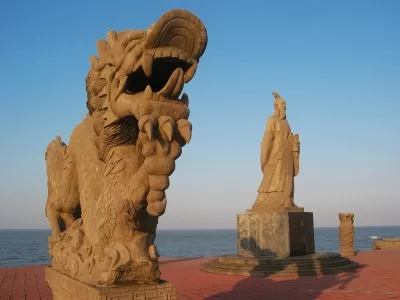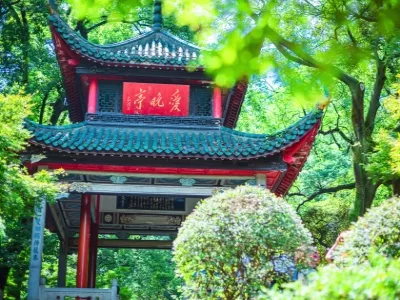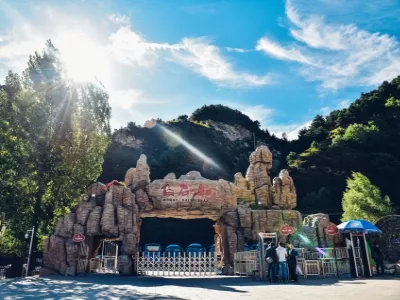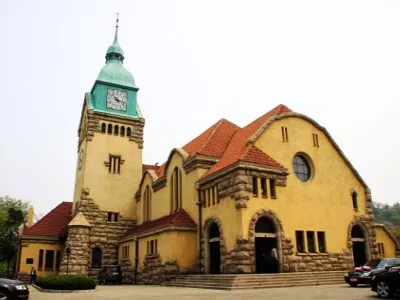Nestled within lofty peaks and ridges in the southwestern corner of Hubei Province, Enshi Tujia and Miao Autonomous Prefecture is home to 27 ethnic groups including the Tujia, Miao, Han and Dong peoples. This young, rugged prefecture nurtures vibrant and distinct local cultures.
Encompassing the two cities of Enshi and Lichuan along with six counties - Jianshi, Badong, Xuan'en, Xianfeng, Laifeng and Hefeng, Enshi boasts awe-inspiring mountain scenery dotted with ancient Hanging Coffins, storied Battle sites, and the spectacular Shennongjia Forest filled with exotic wildlife. With colorful cultures and communities in harmony with majestic nature, Enshi promises an unforgettable experience.
Consumption level
Enshi has a relatively high cost of dining, with meals charged per person rather than per dish. Local restaurants typically charge 30RMB per person minimum, with set menus from 30-80RMB. But a 3 day tour should cost 1000-1500RMB total excluding transportation.
To maximize your budget, opt for basic hotels and mix some inexpensive self-catering into your dining. Focus spending at a couple highlights like Enshi Grand Canyon and Zhangjiajie National Forest Park. Use public transit to get between attractions.
While meal costs are higher, strategic travelers can experience Enshi’s natural scenery of valleys, caves, rivers and forests without breaking the bank. Dine at the lower-priced local joints instead of luxury restaurants. By making budget-conscious choices with lodging, dining, and sightseeing, Enshi can be enjoyable on a moderate budget. Just factor in the higher per-person meal costs when planning.
Daughter meeting
Nu'er Hui - The Daughters' Festival, Enshi, China
Nu'er Hui, or the Daughters' Festival, is a charming courting tradition of the Tujia ethnic minority in Enshi, western Hubei Province. It is celebrated annually on varying dates, such as the 3rd day of the 5th lunar month, July 12th, or August 15th.
Sobugai Stone Forest holds its iconic Nu'er Hui every July 12th by the lunar calendar. The festival coincides with a lively open-air market where locals showcase handicrafts and regional delicacies. For young women, it is an opportunity to await a suitor.
Unmarried girls set up stalls selling local goods while young men browse and bargain. If interested in a maiden, the man approaches to haggle over an item. Through playful negotiation, mutual affection may unfold. Prices drop lower if the girl reciprocates interest and a tryst is arranged.
Blending lively commerce with light-hearted courtship, Nu'er Hui offers a glimpse into the Tujia's rich cultural heritage. The ancient ritual persists as young people find love and elders celebrate continuity.
Location: Sobugai Stone Forest, Enshi, Hubei
Time: 12th day of the 7th lunar month
Ox King Festival
Ox King Festival in Enshi, China
The Ox King Festival is a joint celebration of the Tujia and Miao ethnic groups in Enshi, Hubei province. It honors the ox on the 8th or 18th day of the 4th lunar month, with distinctive legends from each tribe.
The Tujia revere an ox who once helped villagers cross a flooded river, saving many lives. To show gratitude, they abstain from using oxen for plowing that day, instead feeding them well. Festivities involve family reunions, meat feasts and rice cakes.
The Miao credit a divine ox with stealing grains to feed starving villagers long ago. They commemorate this by resting their oxen, providing fine fodder and holding ceremonies at Ox King temples. Rituals include offering eggs, wine and sacrifices to appease the Ox King's spirit.
Marked by sincere tributes, symbolic decorations and communal merrymaking, the Ox King Festival exemplifies the deep bonds between people and cattle in Enshi's agrarian culture. It remains an important expression of identity for both ethnic groups.
Location: Enshi, Hubei, China
Time: 8th or 18th day of the 4th lunar month
Exploring the Lost Toast Culture
Nestled in the remote mountains of Hubei province, Enshi offers a rare glimpse into China’s little-known Tusi heritage. For centuries, the Hmong and Tujia minorities self-governed as Tusi chieftains under imperial China’s unique Tusi system. Strolling through the well-preserved Tusi cities, it's as if time stands still. Massive city walls and archaic towers transport you to the days when these fortresses bustled as autonomous tribal power centers. Wandering quiet lanes past crumbling Qing dynasty architecture, you can almost hear the echoes of the past. Each artifact and structure seems to whisper the legends of these lost kingdoms. As one of the few regions where Tusi cities still exist, Enshi provides an open-air museum to uncover this faded chapter of Chinese history. Let these ancient ruins spark your imagination about the mighty civilizations that once flourished far from the Middle Kingdom’s royal gaze.
Entering a Tujia Village and Tasting the Ancient and Simple Hangjiao Tower
Nestled in Enshi's soaring mountains, remote Tujia minority villages offer a serene glimpse into traditional life. In the aptly named Xiaoxi ("Little Creek"), an idyllic natural village straddles a burbling stream. Between rippling tea fields and rice paddies, dozens of ancient stilt houses remain perfectly preserved. These diaojiaolou structures feature airy tiers lifted on stilts above the slopes, with roofs sweeping up at the edges like butterfly wings. Marvel at carpentry masterpieces built without nails or concrete, enduring thanks to careful upkeep over generations. Savor the untouched landscapes that nourished these communities for centuries, shrouded in mist at dawn and blazing red at dusk. By experiencing Tujia traditions in villages like Little Creek, you'll appreciate how Enshi's isolated setting helped safeguard China's diversity through the centuries.
Best Travel Time
Enshi Prefecture has a lot of rain and fog, and the rain is hot at the same time. Therefore, traveling here is often affected by several consecutive days of bad weather, so it is best to avoid the rainy season when traveling to Enshi. However, the mountains in Enshi are not beautiful without rain. The best weather is sunny after rain, with a view of the sea of clouds, waterfalls, and the beautiful scenery surrounded by clouds and mist. The best travel time for Enshi is from April to July and from October to November. During the spring and summer seasons of April to July, various flowers bloom in the mountains and valleys, such as azaleas, rapeseed, and a sea of clouds; In the golden autumn season from October to November, maple and fir trees are colorful and visually feast.Self driving
There are two main routes for self-driving to Enshi:
Wuhan - Yichang - Enshi
Total Distance: approx 560km
Duration: approx 6 hours
Toll Fees (one-way): approx 350 RMB
Route: 400km on expressway from Wuhan to Yichang (3hrs); 160km on expressway from Yichang to Enshi (3hrs). Major cities along the way are Jingmen, Yichang, Changyang, and Yesanguan before reaching Enshi.
Chongqing - Lichuan - Enshi
Total Distance: approx 390km
Duration: approx 6 hours
Toll Fees (one-way): approx 265 RMB
Route: 320km from Chongqing to Lichuan (4.5hrs); 70km from Lichuan to Enshi (1.5hrs). Major cities along the way are Changshou, Shizhu, and Lichuan before reaching Enshi.
The roads within Enshi are mostly mountain roads. Drive slowly and carefully. Avoid driving at night. The expressways from Wuhan and Chongqing shorten the journey, but exercise caution as conditions change once entering Enshi. Check traffic and weather conditions ahead of your trip. Give yourself plenty of time to account for slower speeds through the mountains.
Medical treatment
Here are some key tips for respecting local culture and staying safe in Weihai, China, for an English travel website:Respecting Local Customs in WeihaiWhen visiting Weihai, please keep these etiquette and safety tips in mind:- Avoid mentioning pork when visiting Hui communities or halal restaurants. Use "zhuang" instead of "fat" which is taboo. - Do not touch or step on ethnic or religious symbols. - Weihai is clean and beautiful so please don't litter or spit. - Refrain from tapping bowls with chopsticks or swatting pets in restaurants or homes. - Conserve water as Weihai is prone to shortages. - Hotels along Weihai's scenic shoreline are pricier but offer sea views and soundscapes at night. Splurge if you can.- Watch for Weihai's winding,Typing…Safety considerations
When at crowded places like train stations, bus terminals, and metro stations, keep a close eye on your belongings to prevent theft. Areas with high tourist traffic like Tiananmen Square also attract scammers, so tourists should be wary of unlicensed guides demanding money upfront. Avoid handing over any cash to solicitations on the street. Use registered taxi companies like the red Beijing taxis whenever possible. Keep valuables secured and hidden, avoid carrying large amounts of cash, and be alert in public transportation hubs and tourist sites. When needing assistance, go to authorized help points like the Beijing Tourist Information booths rather than individuals roaming the streets. Beijing is a generally safe city if simple precautions are taken. Report any incidents or suspicious activities immediately to the nearest police officer. They can also provide directions and other help. Enjoy sightseeing, but remain aware of the surroundings.

